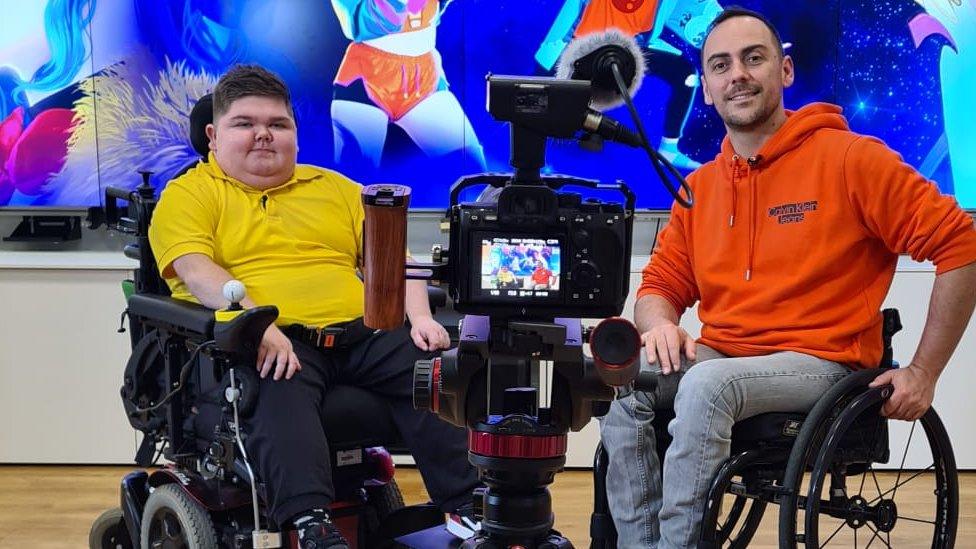Festival-goers feel listened to on disabled access
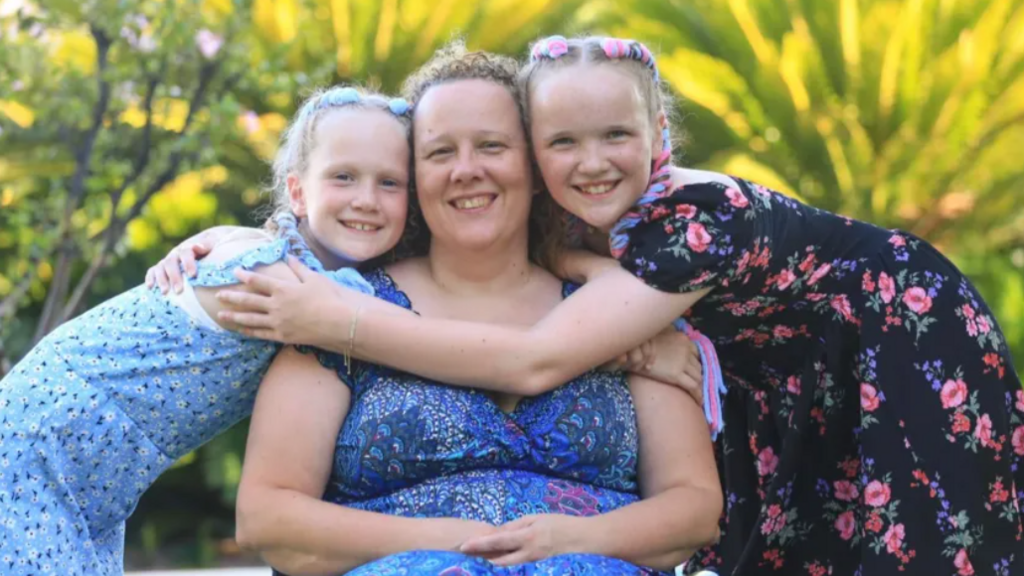
Cat Dafydd says she thinks it's important to speak out about access needs
- Published
A woman says an annual youth arts festival has listened to concerns about disabled access.
Last year, people expressed their upset about a lack of changing facilities and other access requirements at the Urdd Eisteddfod, held in Llandovery, Carmarthenshire.
Organisers Urdd Gobaith Cymru apologised, and have since embarked on a new partnership with Disability Arts Cymru.
"It makes me think they've listened," said Cat Dafydd, a wheelchair user from Llandysul, Ceredigion.
Apology for disabled woman denied Swift tickets
- Published6 May 2024
Accessibility issues 'make clubbing difficult'
- Published8 December 2023
Blind Girls Aloud fan slams inaccessible ticket site
- Published27 May 2024
The Urdd says improvements at this year's event in Meifod, Powys, include more track maps to cover the ground, a high-dependency unit toilet with a hoist, and a British Sign Language (BSL) service available on site.
Ms Dafydd, who uses a wheelchair following a spinal cord injury, said she had attended the Urdd Eisteddfod with her family in previous years, with great difficulty.
"When we’ve visited the Urdd before, it has been very difficult to move round, very difficult to find somewhere suitable to go to the toilet.
"It was hard to go into the pavilion and find somewhere, to roll in, to stay."
But she added that "this time it's different".
"A lot of things I can see they've really considered and changed.
"I complain a lot about things to make it fair for people in a wheelchair.
"They've listened, not only me, but there's a lot of different disabilities... it's very important."
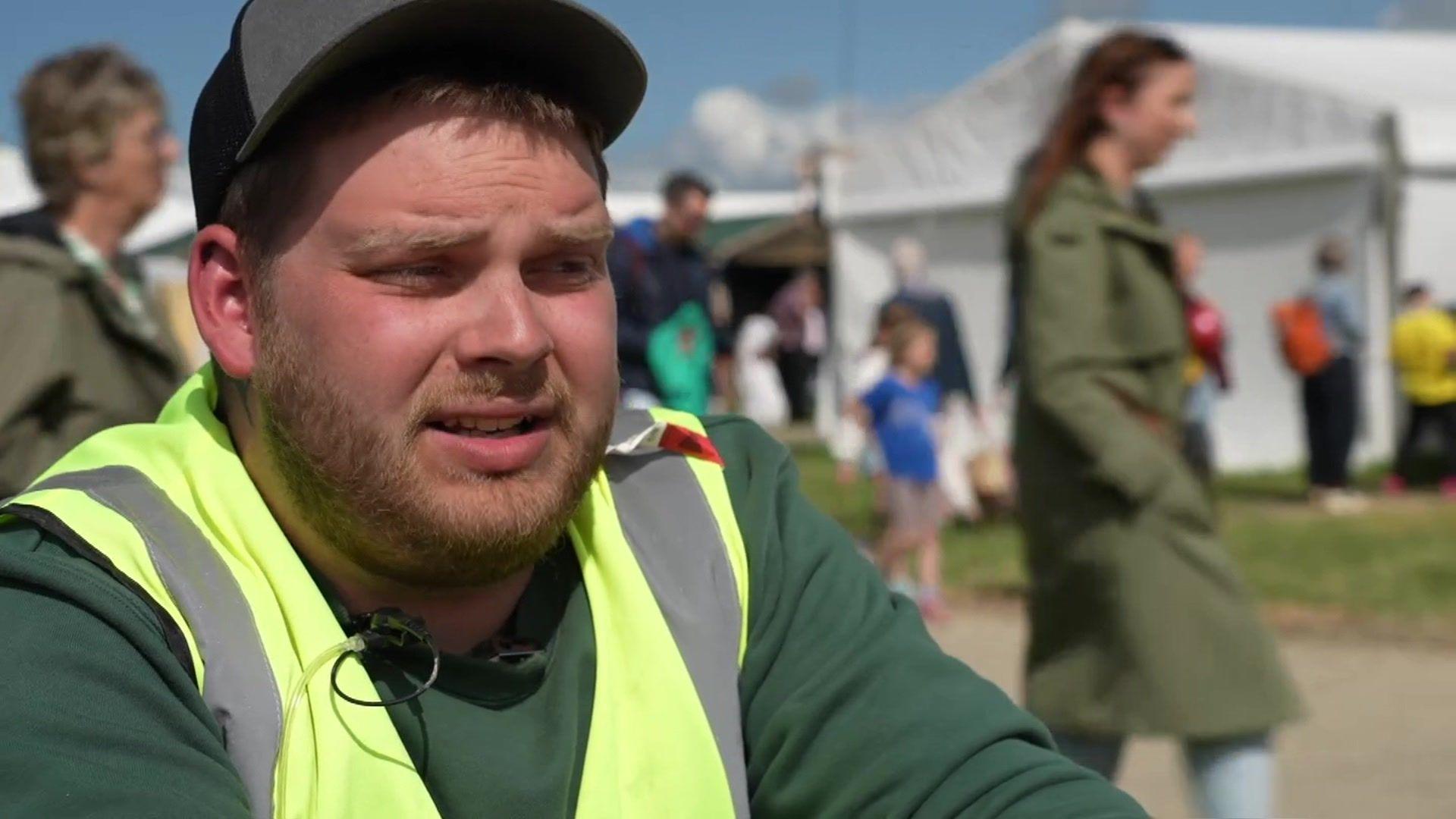
Ollie Griffith-Salter says the festival wants to be the most accessible in the UK
Ollie Griffith-Salter is now the festival’s accessibility officer, but he secured the position after also raising his concerns about accessibility when he attended last year’s event as a visitor and wheelchair user.
“They listened to me,” he said.
“We’ve made a lot of changes this year with the Eisteddfod staff, bringing in people like myself with disabilities, to improve the understanding of disabilities across the board.
“We want the Eisteddfod yr Urdd to be one of the most, if not the most, accessible festival in Wales and in the UK.”
He added the event was “a part of our DNA, our culture” but preserving it for generations to come required making it as accessible to all as possible.
“We will never settle for the bare minimum. We thrive on providing the best that we can and we will always be pushing, as the Eisteddfod yr Urdd, to make our festival better every year,” he said.
“Having a disability shouldn’t stop you from enjoying your life and going out into stuff like the Eisteddfod yr Urdd, with your family and friends.”
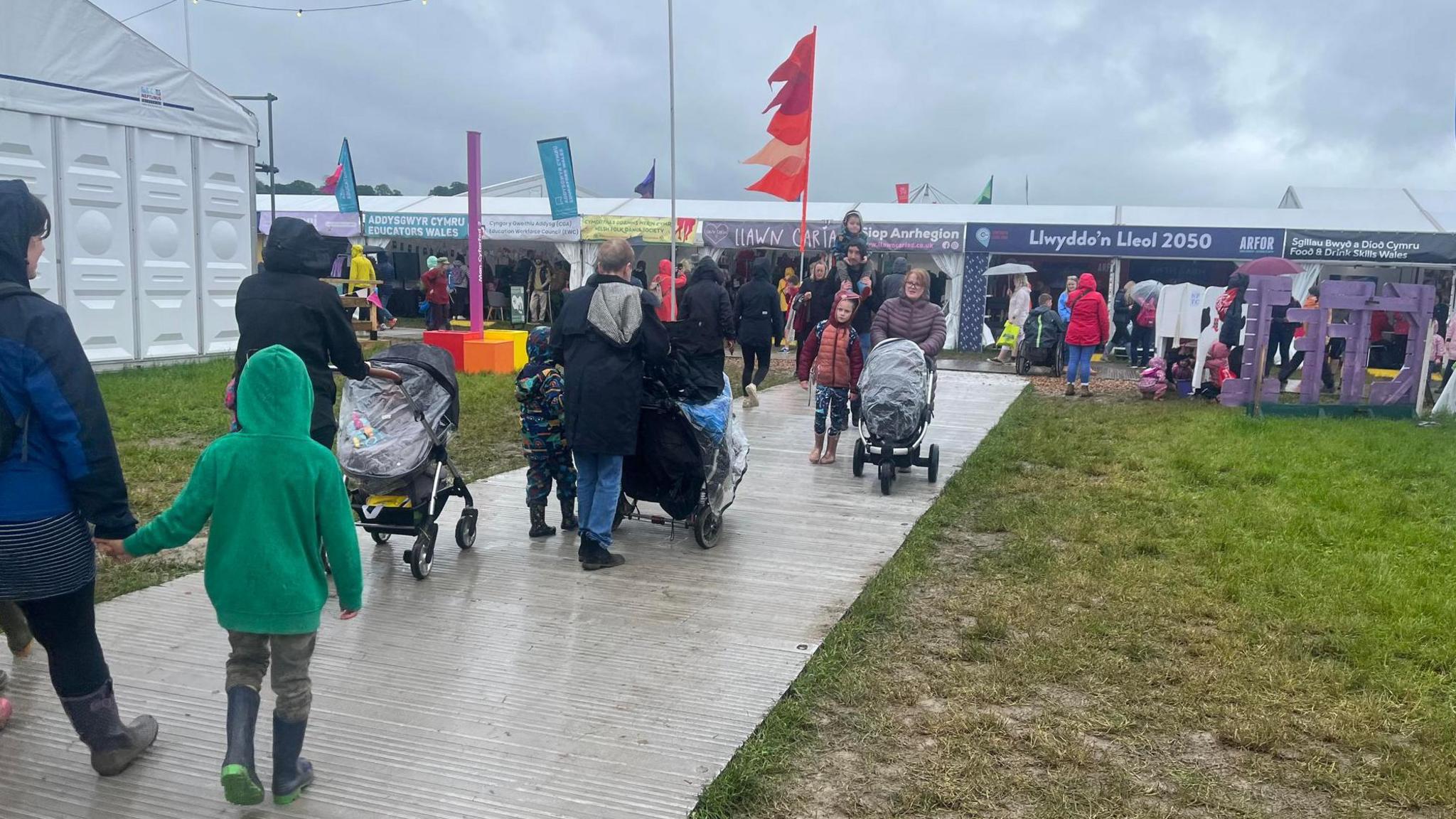
Track maps like this are placed on areas of the Maes to make moving around the areas of the festival easier
Emily Bolwell from Risca, Caerphilly county, said she tried to attend the festival every year and had seen accessibility “getting better”.
The 35-year-old uses crutches or a wheelchair and says she feels confident that staff are always on-hand if she has any difficulties.
“I do think there is a massive thing with disabilities and Welsh language [events], people seem to think they aren’t compatible,” she said.
“There is always room for improvement, but it’s improving year on year. And the more feedback they get off the disabled community, the more changes they can make.”
The mother-of-four said she felt the festival had made an effort to look at other types of accessibility as well.
For example, her four-year-old son Brychan is autistic and the family make good use of what she describes as the “chill-out tent”.
“To just know I can take him there, if things are getting too much, makes me feel it’s a safe space,” she said.
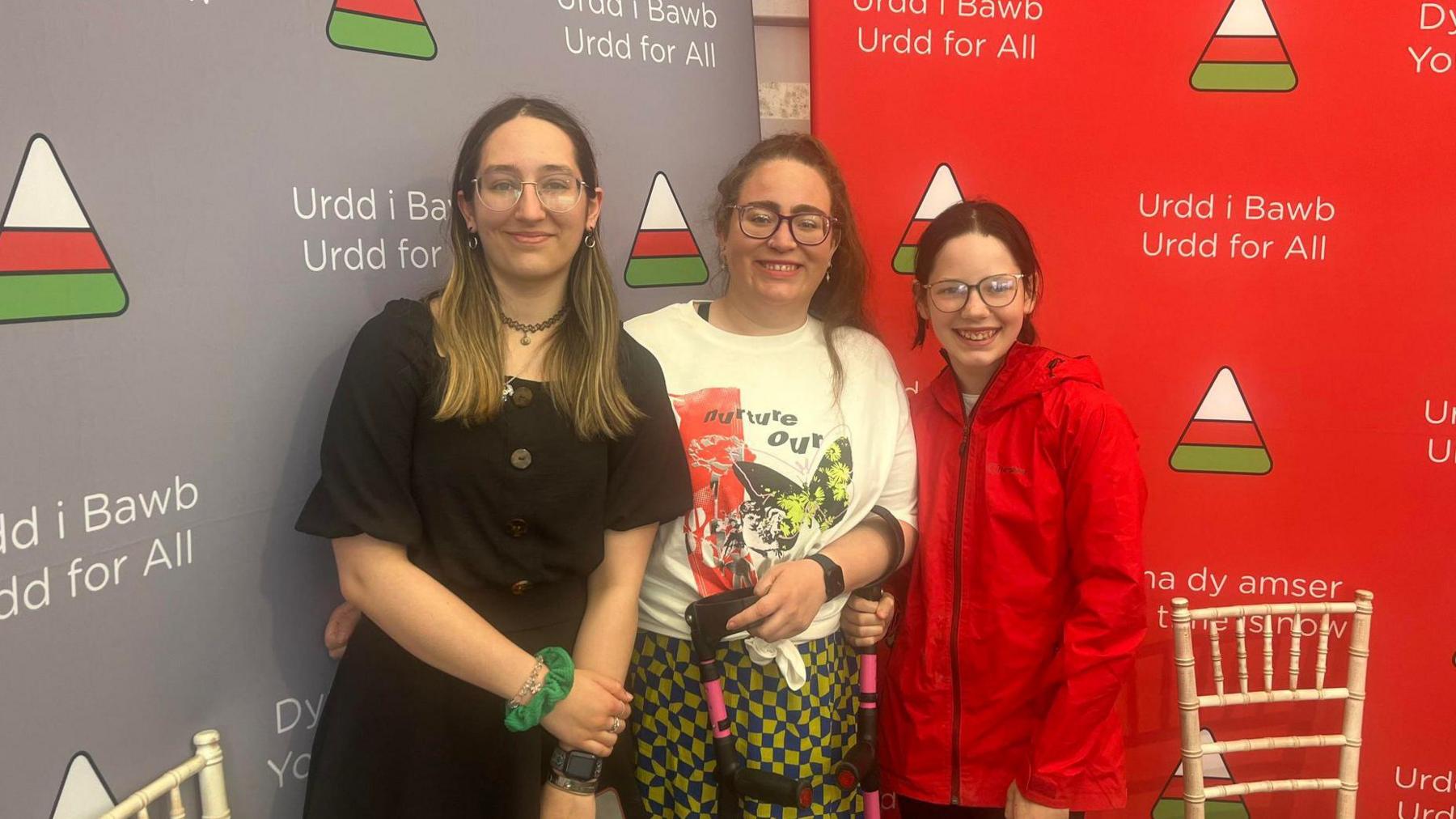
Emily Bolwell (middle) is pleased at the accessibility progress of the Urdd
The family also has a low income and her eldest children, who are registered carers due to her disability, were selected last year for fully-funded places to the Urdd’s summer camps.
“It meant the world to our family,” she said.
“This was an opportunity for them to have fun, make friends, use their Welsh, and the chance to be children without the burdens on their shoulders.”
The Urdd’s Fund For All scheme hopes to increase these spaces from 110 last year and 300 this year, to 1,000 in 2025.
“They have got a lifetime of memories and the more awareness we raise, the more money we raise, the better for children in Wales,” said Ms Bolwell.
“The Urdd shows them they can achieve anything, no matter what obstacles come in your way.”
Llio Maddocks, the Urdd’s Director of the Arts, said festivals “deserve to be enjoyed by all”.
She said the setting up of an accessibility forum and collaboration with several different organisations had allowed organisers to “ensure the Urdd’s arts experiences continue to evolve and grow”.
Additional reporting by Craig Duggan
Related topics
- Published26 May 2024
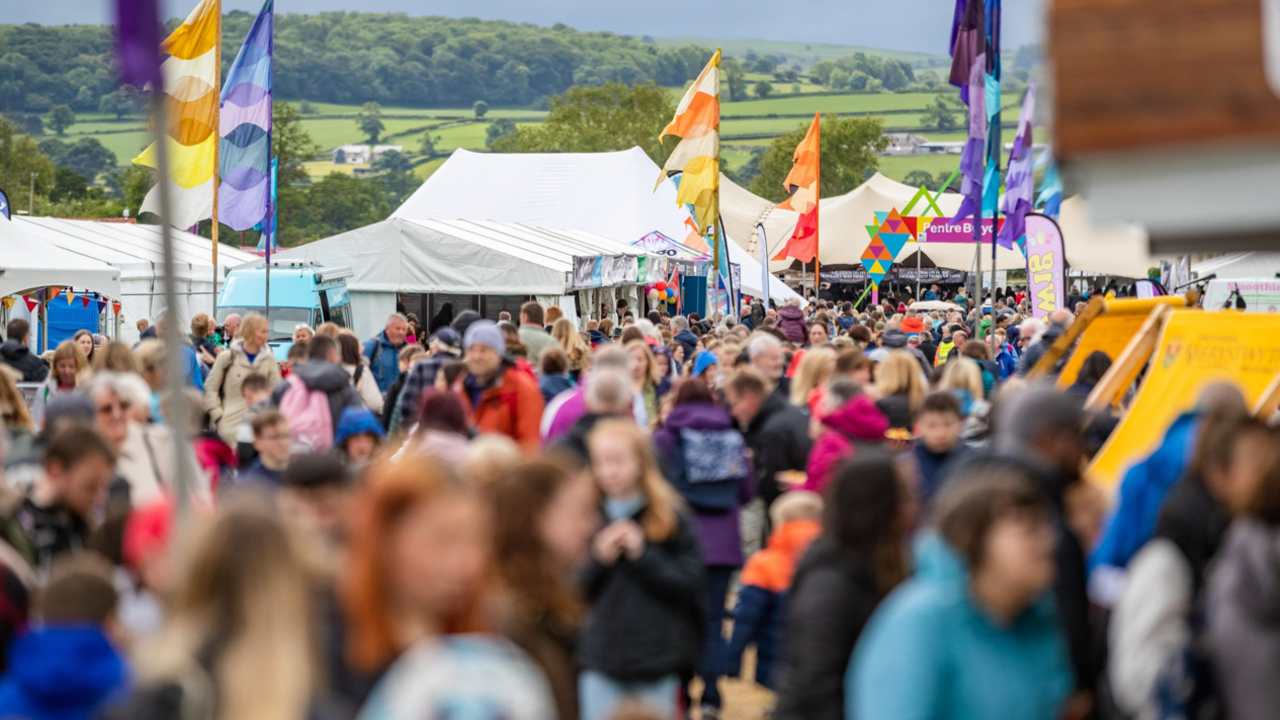
- Published19 July 2021
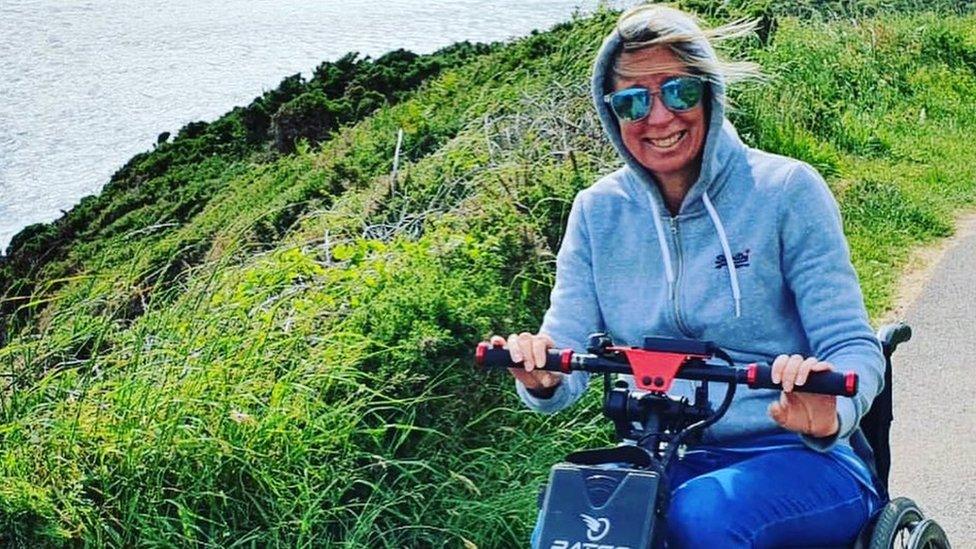
- Published10 November 2023
